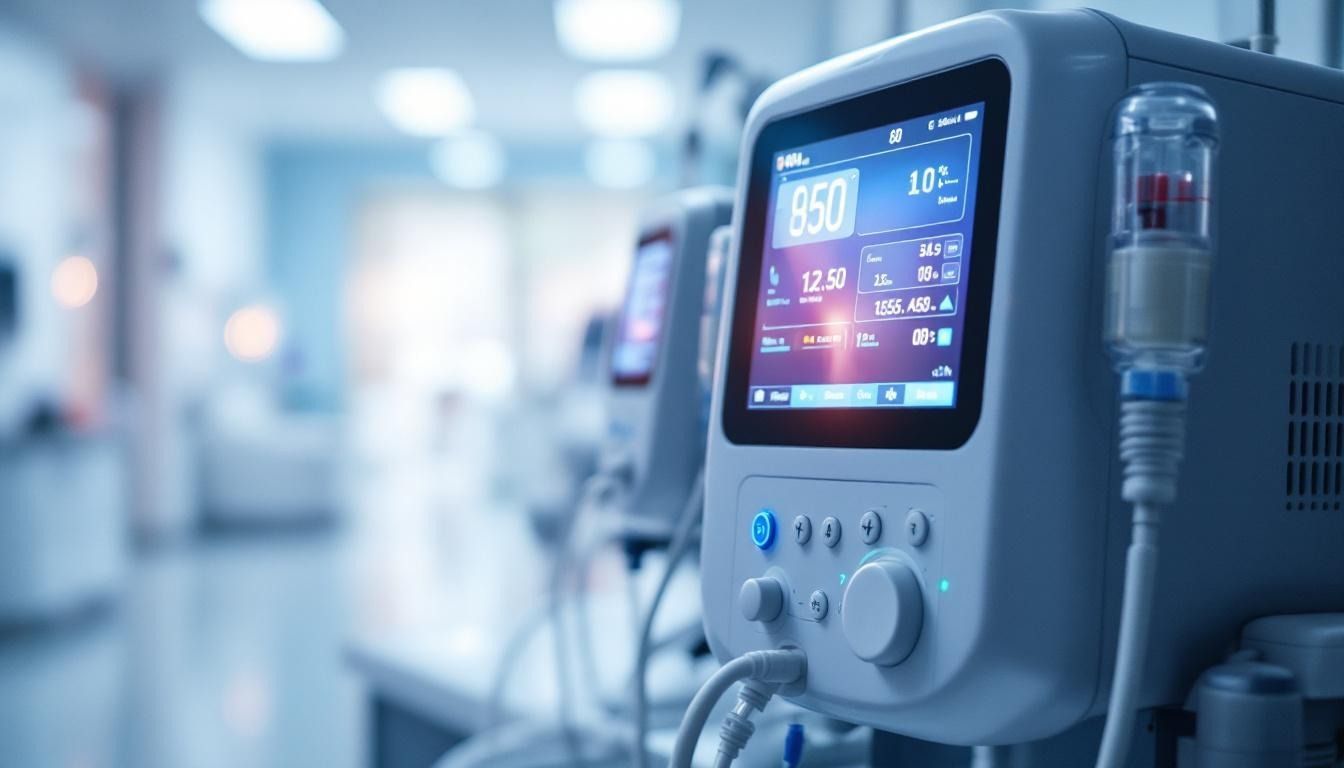How secure is weight prescription delivery?
Introduction: Understanding the Risks and Processes
With the increasing popularity of online pharmacies and the convenience they offer, many individuals seek faster and more private ways to obtain weight loss medications. However, the process of securing these prescriptions safely through delivery services poses various challenges, encompassing legality concerns, security measures, and the potential health risks. This article delves into the complex world of weight prescription delivery, scrutinizing every aspect from regulatory frameworks to safe handling and storage issues, aiming to answer pressing questions and offer guidance on navigating this landscape safely.
Risks of Illegitimate Online Pharmacies

Illegal online pharmacy operations
Around 42% of online pharmacies selling semaglutide, a medication used for weight loss, operate illegally. These pharmacies often lack valid licenses and sell medications without required prescriptions. This situation creates a hazardous environment for consumers, as they are at high risk of scams and encountering unsafe products that can lead to health complications.
Safety of semaglutide and compounded medications
The risks associated with non-regulated purchases are further underscored by alarming findings from a recent study. Some tested online pharmacies sold semaglutide with unsafe levels of endotoxin, which can cause illness when injected. Compounding pharmacies, while licensed, may also produce semaglutide without FDA approval, leading to concerns over safety and efficacy of compounded drugs. Reports indicate that semaglutide from illegal sources sometimes contained higher than labeled doses, exacerbating health risks. In 2023, there were nearly 3,000 calls to poison centers related to semaglutide overdoses, illustrating the critical need for proper medical oversight.
Regulations and authentication
For safety, legal pharmacies should always require a prescription. Consumers purchasing weight loss medications online must ensure they are buying from U.S. state-licensed pharmacies. With only about 5% of online pharmacies deemed legitimate, it is crucial to verify the authenticity of any online pharmacy to avoid severe consequences. The increasing demand for weight loss drugs poses additional challenges in distinguishing legitimate pharmacies from illegal ones, emphasizing the need for careful attribution and consideration in medication sourcing.
| Topic | Details | Implications |
|---|---|---|
| Illegal Online Pharmacies | 42% selling semaglutide illegally, without prescriptions | High risk for scams and unsafe products |
| Safety Issues with Semaglutide | Dangerous levels of endotoxin found in some products | Potential for serious health complications |
| Compounding Pharmacies Legitimacy | Licensed but not FDA-approved; risk of unsafe drugs | Need for thorough vetting by patients |
Comparing Legal and Compounded Semaglutide
Differences between FDA approved and compounded medications
When it comes to semaglutide, understanding the distinction between FDA-approved medications and compounded versions is crucial. FDA-approved semaglutide, like Wegovy, undergoes rigorous testing to demonstrate its safety and effectiveness, ensuring consumers receive a reliable product. In contrast, compounded semaglutide may not adhere to these standards. Compounding pharmacies can customize medications to meet individual patient needs but do so under less stringent regulations. The lack of oversight means compounded versions might have incorrect concentrations, or in some cases, lack the active ingredient altogether.
Safety procedures for compounded semaglutide
For consumers opting for compounded semaglutide, safety is a top concern. Despite being regulated at the state level, compounding pharmacies are not required to obtain FDA approval for their formulations. As a result, some have reported serious adverse events related to compounded semaglutide, including bacterial contamination potentially leading to hospitalization. To mitigate risks, consumers are advised to ensure they are purchasing from licensed compounding pharmacies and verify the quality of ingredients used.
Potential side effects and health risks
Both FDA-approved and compounded semaglutide can lead to similar side effects, such as nausea, constipation, and diarrhea. However, the variability in compounded drugs introduces additional health risks. With some illegal online pharmacies selling semaglutide with unsafe levels of endotoxins, the consequences of injection can pose serious health threats. Moreover, over 3,000 calls were made to poison control centers in 2023, reflecting significant safety concerns for individuals self-administering semaglutide without proper medical supervision.
With this understanding, patients should prioritize consulting with legitimate healthcare providers to find safe and effective weight loss medications and pathways toward health.
| Aspect | FDA-Approved Semaglutide | Compounded Semaglutide |
|---|---|---|
| Regulation | Strict FDA oversight | State regulation only |
| Safety Testing | Extensive clinical trials | Variable, less oversight |
| Side Effects | Documented (common) | Similar but less predictable |
| Quality Assurance | Guaranteed by FDA | Dependent on pharmacy |
How can I get prescribed weight loss medication?
To get prescribed weight loss medication, you should first consult your healthcare provider, who will evaluate your weight loss efforts through diet and exercise. They may recommend medication if you have a Body Mass Index (BMI) over 30 or a BMI over 27 with obesity-related health issues, such as diabetes or high blood pressure. There are several FDA-approved weight-loss drugs, including Contrave, Saxenda, and Wegovy, which can help you lose an additional 3% to 12% of your weight compared to lifestyle changes alone. It's important to discuss the potential side effects and cost of these medications, as they can lead to expenses not covered by insurance. Always seek professional medical advice before starting any weight-loss medication or undergoing surgery, as safety and efficacy are paramount.
The Role of Telehealth in Prescription Delivery
Telehealth services for weight loss prescriptions
Patients seeking weight loss solutions can now access services for medications like Ozempic®, Wegovy®, and compounded semaglutide through telehealth platforms. This convenient method allows healthcare providers to evaluate patients and prescribe these GLP-1 agonists remotely, which help to reduce appetite and cravings, facilitating weight loss.
Impact of virtual care on medication accessibility
The rise of telehealth services has notably increased accessibility. Platforms like Eli Lilly's LillyDirect and a partnership with Amazon Pharmacy offer online consultations and direct-to-home delivery for weight loss medications. This is especially beneficial for individuals unable to attend in-person appointments due to mobility issues or scheduling conflicts.
Risks and benefits of online consultations
Despite the convenience, there are associated risks. Ill-informed purchases from non-legitimate online pharmacies have surged, with a significant portion offering illegal semaglutide medications. This increases the likelihood of scams and unsafe products, as many pharmacies operate without proper licensing or medical oversight. Additionally, patients are encouraged to monitor their conditions closely, as virtual care can limit tracking progress for those with complex health needs.
Can you get weight loss shots online?
Yes, you can get weight loss shots online through telehealth platforms. Medications such as Ozempic®, Wegovy®, and compounded semaglutide can be prescribed remotely and delivered to your home. These medications, which belong to the class of GLP-1 agonists, help with weight loss by curbing appetite and reducing cravings. However, it's important to note that common side effects may include gastrointestinal issues and fatigue. Additionally, most insurance plans may not cover these medications unless linked to specific health conditions, so patients often pay out-of-pocket.
The Importance of Verified Online Pharmacies

Ensuring pharmacy legitimacy
A staggering 42% of online pharmacies selling semaglutide, a drug used for weight loss, are operating illegally. These entities lack valid licenses and frequently offer medications without prescriptions. For consumers, this raises significant red flags about the legitimacy and safety of their potential purchases.
Verification processes and consumer safety
To ensure safety when buying medications online, consumers should be vigilant in verifying the legitimacy of pharmacies. Legitimate online pharmacies typically require a valid prescription. If a pharmacy does not adhere to this critical standard, it is likely operating illegally, putting consumers at risk for scams and counterfeit products that can cause serious health issues. The FDA warns consumers to check for state licensing and to verify the source of ingredients.
Authenticity of medications
Reports indicate that drugs ordered from illegal pharmacies often contain unsafe levels of active ingredients or even toxic contaminants. A study found instances of compounded semaglutide having higher drug concentrations than advertised, posing serious health risks. Thus, it is essential for consumers to choose verified online pharmacies that comply with federal and state regulations for their medications.
| Factors for Ensuring Pharmacy Legitimacy | Key Considerations | Consumer Safety Tips |
|---|---|---|
| Verification of licenses | Check pharmacy license through state boards | Always require a prescription |
| Source of medications | Assess the supply chain of ingredients | Conduct research on pharmacy reputation |
| FDA compliance | Look for FDA approval where applicable | Consult healthcare providers before purchasing |
Delivery Challenges and Solutions

Issues with medication delivery
The convenience of prescription delivery is often overshadowed by challenges that consumers face. Reports indicate that one in four patients using mail-order prescriptions encountered issues such as delays, damage, and misdelivery. With an increasing number of Americans relying on this method, particularly for weight loss medications, the safety and timeliness of these shipments have become paramount.
Effective delivery strategies
To ensure safe and efficient medication shipments, it’s crucial to adopt effective strategies:
- Order larger supplies : This can minimize the frequency of deliveries and potential issues.
- Specify delivery instructions : Clear directives can help carriers understand where to leave the package securely.
- Track your package : Active tracking allows consumers to anticipate delivery and be present when the package arrives.
Ensuring timely and safe shipments
Proper organization during the delivery process contributes significantly to patient safety. For example, medications are generally packaged carefully, often using bubble wrap and ice packs to maintain appropriate temperatures. Deliveries also include clearly labeled bags containing pertinent information like the patient’s name and dosage details, enhancing clarity.
Monitoring these aspects is essential for better health outcomes. As seen with the increased demand for GLP-1 medications, a well-coordinated delivery system enhances patient adherence to weight loss treatment plans. However, consumers should remain vigilant; if complications arise, they must promptly contact their pharmacy for resolution.
Additionally, ensuring that the pharmacy is a legitimate source can safeguard against unauthorized practices often found in the online marketplace.
Security in Medication Storage and Transportation

Temperature control and handling
Maintaining proper temperature control during medication delivery is crucial, especially for sensitive treatments like weight-loss drugs. Patients often receive medications requiring cold storage in non-insulated packaging, raising concerns about their safety and effectiveness.
Impact of improper storage on medication efficacy
Extreme temperatures can degrade medications, making them unsafe or less effective. Proving that a drug has lost its efficacy due to temperature exposure is nearly impossible, which adds another layer of risk for patients relying on mail-order services.
Mail-order pharmacy practices
To mitigate the risk of delivery issues, many pharmacies are adopting better practices. For instance, medications are now commonly packaged with bubble wrap and ice packs to ensure protection during transport. Additionally, clear labeling and delivery tracking help customers verify their medications and address any concerns promptly.
Best Practices for Safe Prescription Delivery

Consumer advice on securing prescriptions online
To guarantee safety when obtaining prescriptions online, consumers should always verify that the online pharmacy holds a valid license. Legitimate pharmacies require prescriptions and provide clear communication with healthcare providers. Websites that do not ask for a prescription are likely illegal and potentially harmful.
Critical safety checks
Before purchasing medications, check if the pharmacy is accredited by the National Association of Boards of Pharmacy (NABP). Additionally, review the ingredient sources to ensure they comply with FDA guidelines. Report any suspicious activities to authorities to protect other consumers.
Guidelines on safe usage and storage
Proper storage is crucial for maintaining medication efficacy. Ensure medications are stored in a cool, dry place away from extreme temperatures. When receiving deliveries, inspect packages for any signs of damage or tampering, and contact the pharmacy promptly for any concerns.
Conclusion: Safeguarding Your Health
Navigating the world of online prescription delivery, especially for weight loss medications, requires a meticulous approach to ensure safety. Consumers must prioritize buying from verified, legal pharmacies and be aware of the potential risks associated with illicit online sellers. The security of personal data, the legitimacy of sources, and the safe handling and storage of medications are paramount. By understanding the delivery mechanisms and potential pitfalls, patients can maintain their health while enjoying the convenience of modern pharmacy services. Always seek advice from healthcare professionals and consider the long-term implications before integrating new medications into your health regimen.
References
- Nearly half of online pharmacies selling weight loss drugs are ...
- Why buying weight loss drugs without a prescription is risky
- Are Weight Loss Drugs Coming from Compounding Pharmacies Safe?
- Buying Weight Loss Drugs from LillyDirect: What to Know
- Buying semaglutide online? Here's what to know about ... - NPR
- Millions of Americans receive drugs by mail. But are they safe?
- Prescription weight-loss drugs: Can they help you? - Mayo Clinic
- Eli Lilly taps Amazon Pharmacy to help deliver Zepbound, other drugs
- When medication deliveries hit a snag - Harvard Health
- Where to Get a Prescription for GLP-1 Weight Loss Medications Online













